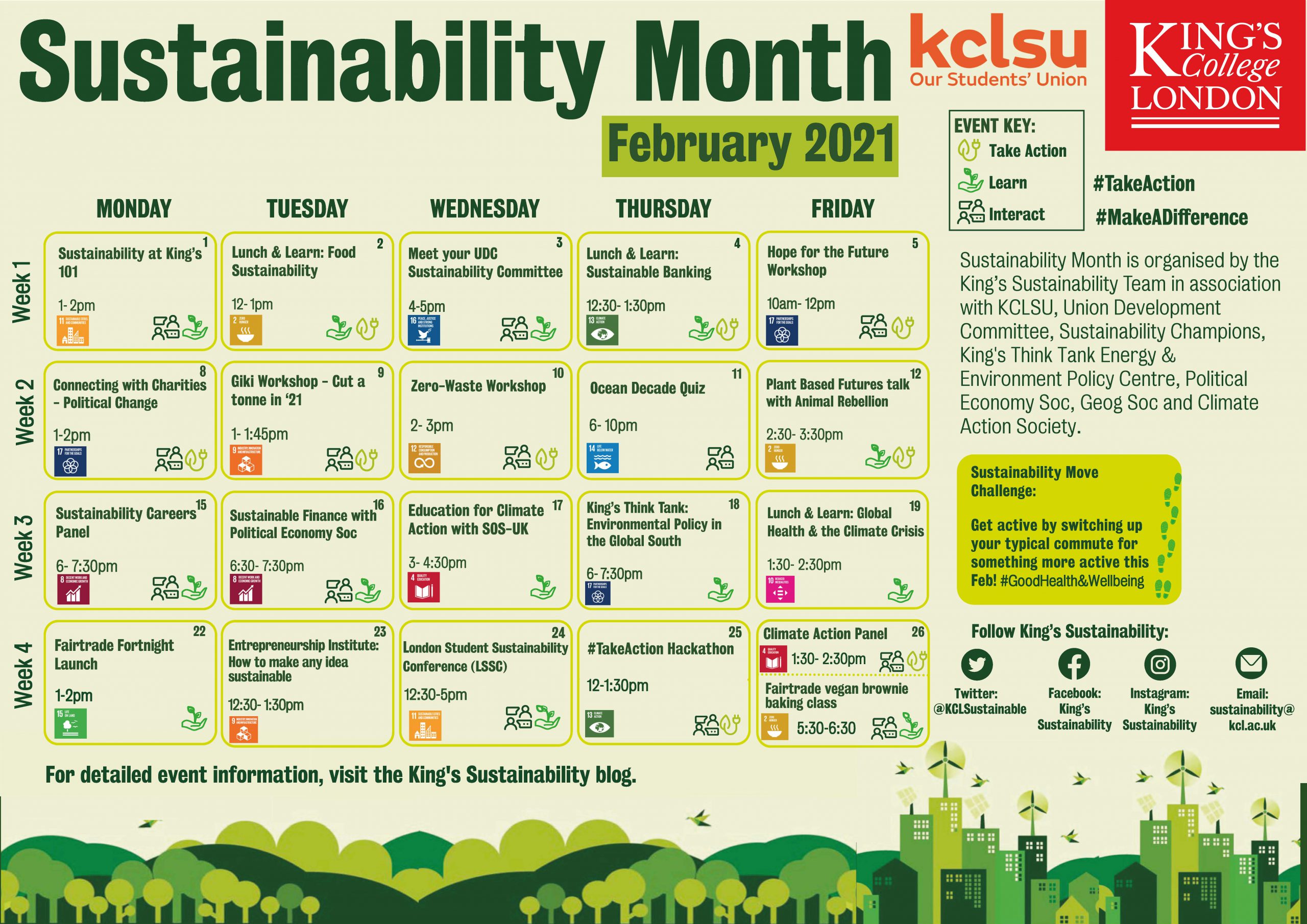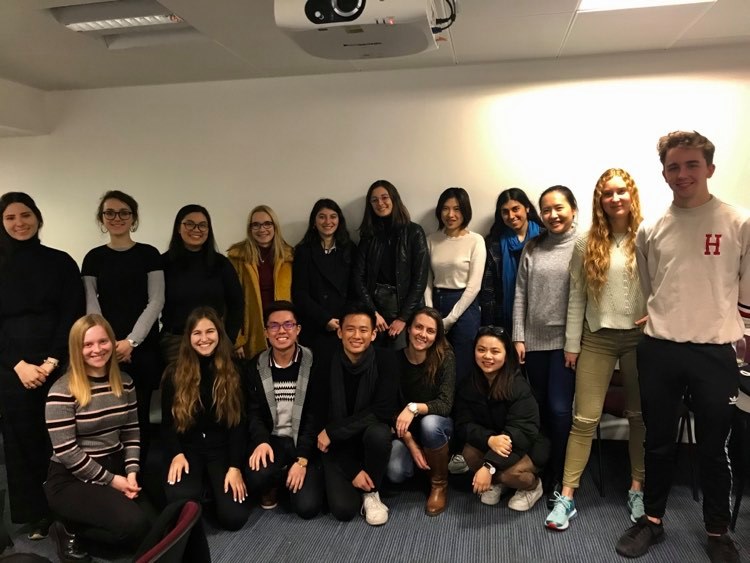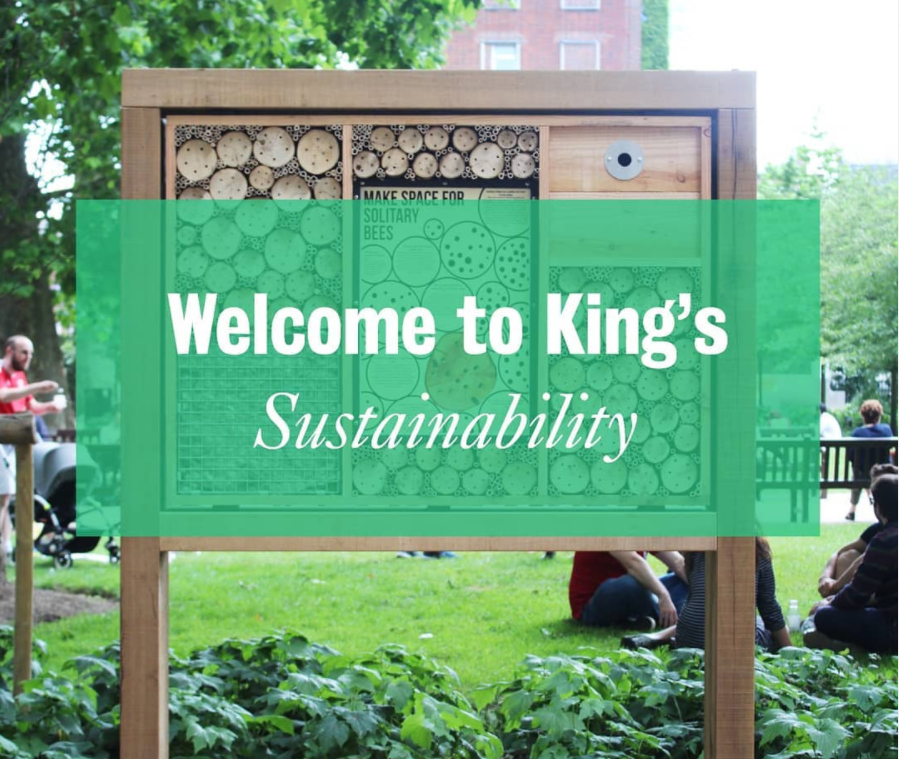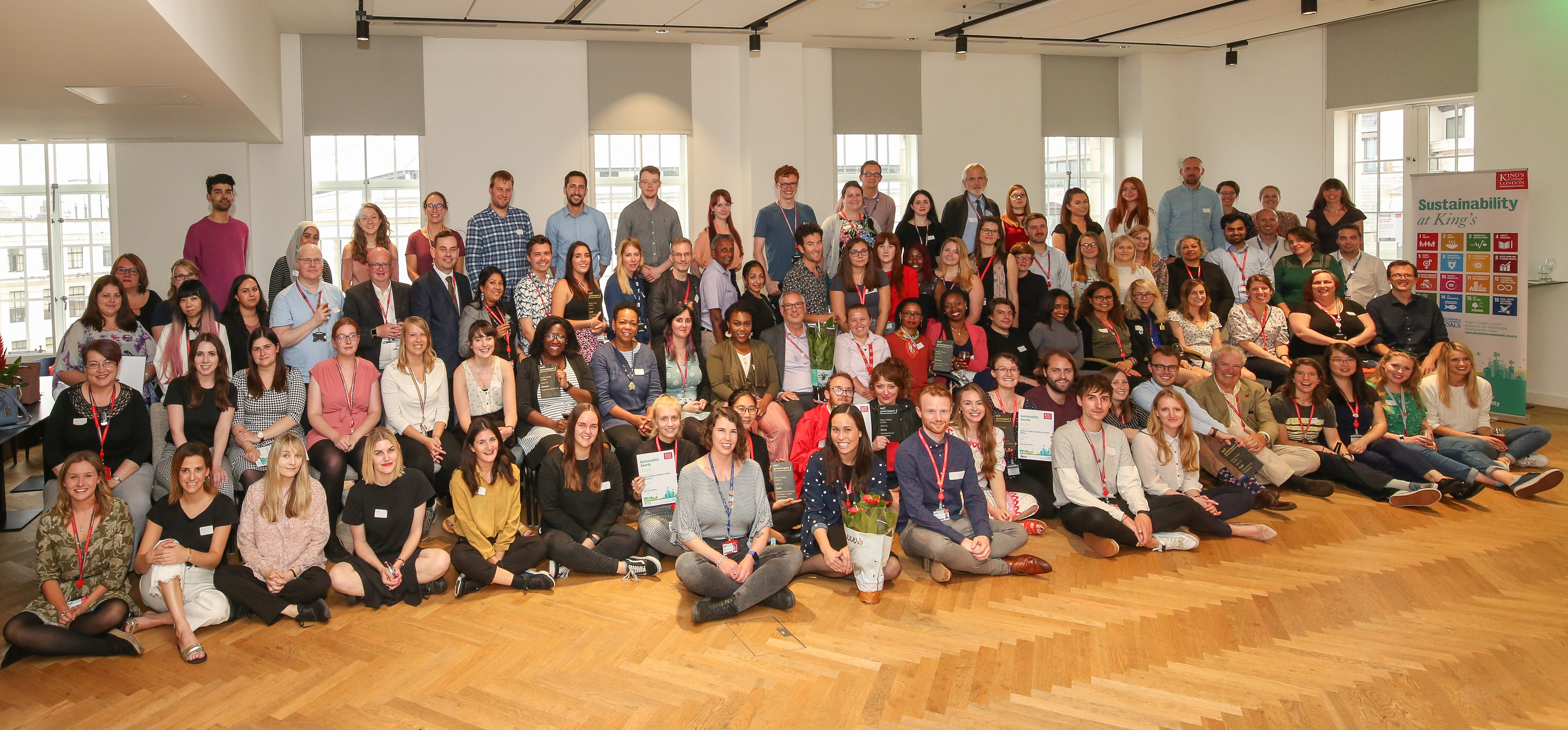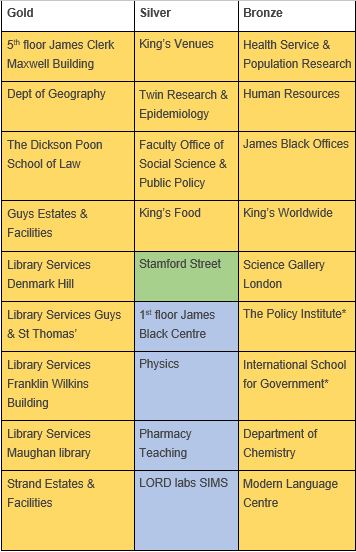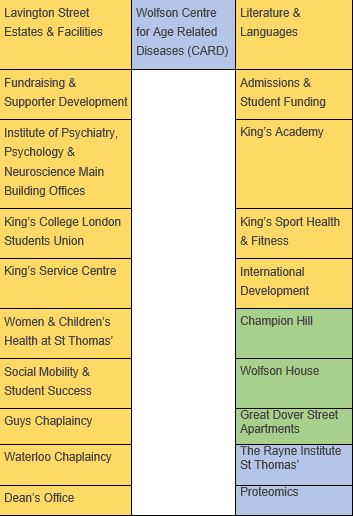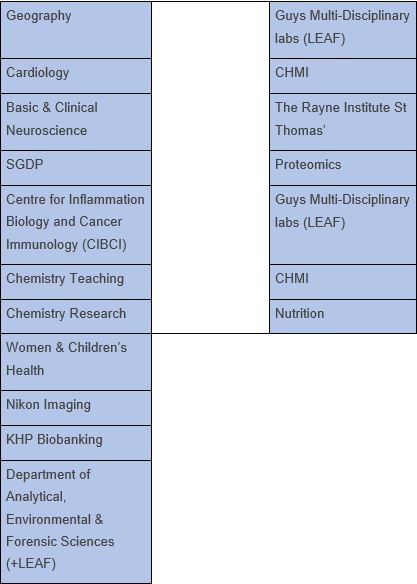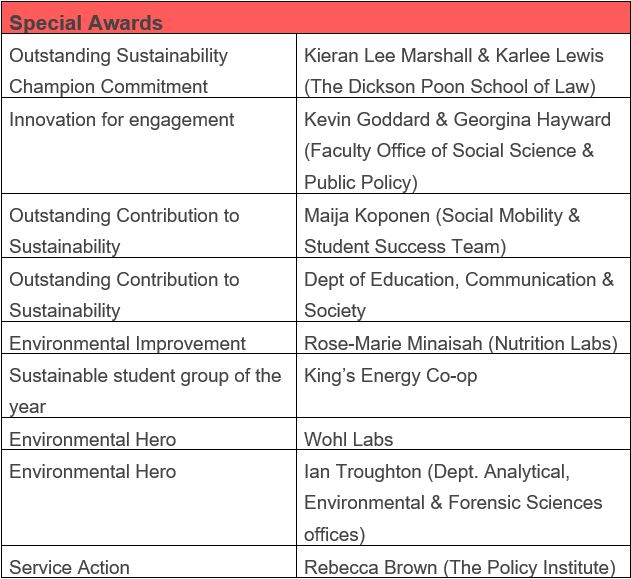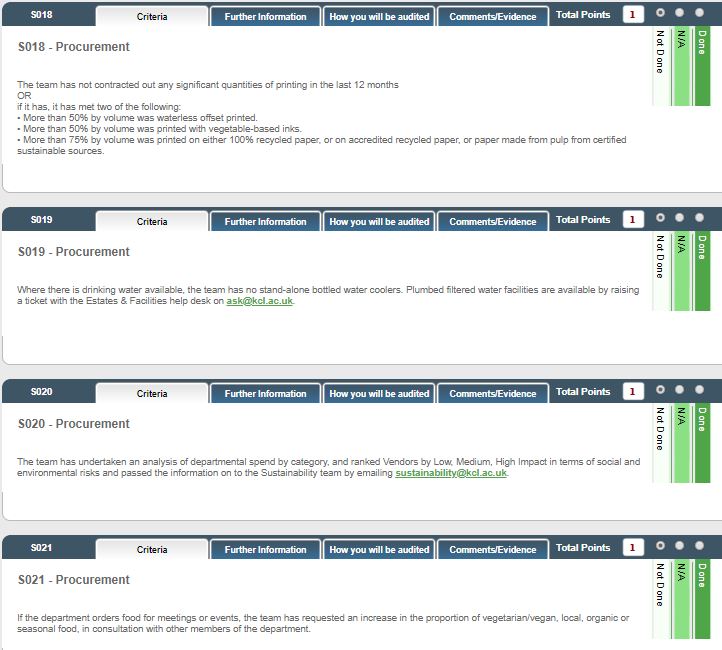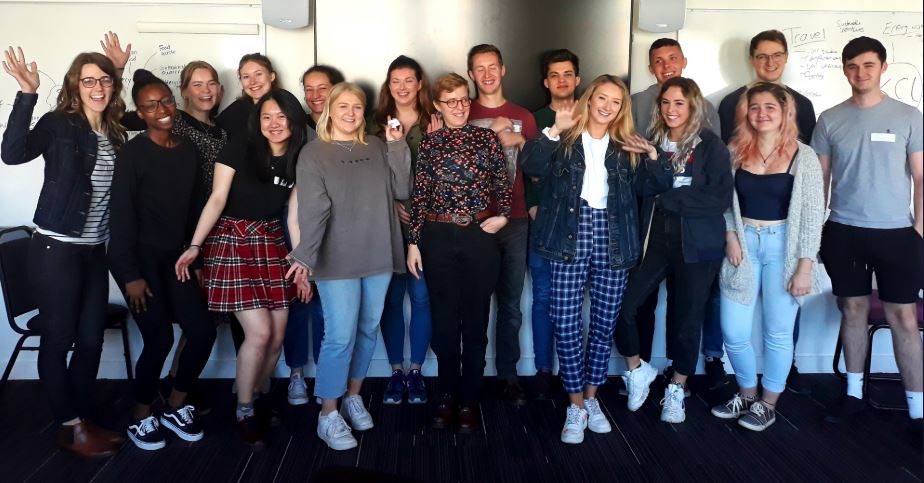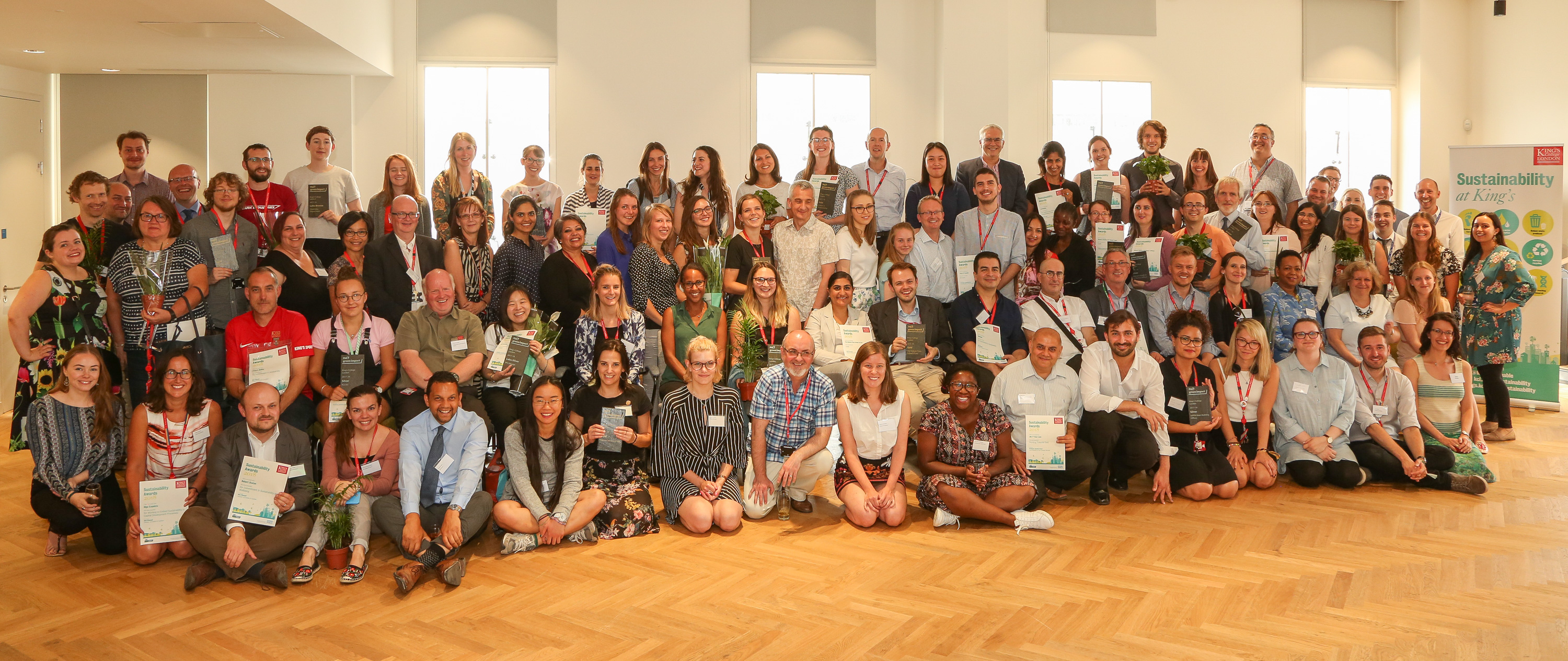This guest blog comes courtesy of Emily Dunne, Sustainability Champion in the Social Mobility Student Success.
This journey starts in October, when I joined On Purpose, I started at King’s and took the WWF carbon footprint test for the first time. Horrified, I learnt that annually I was using 200% of my share of the world’s resources.
That same month we were flooded with news of an upcoming climate catastrophe following the IPCC special report and changing jobs had left me with a new work-life balance, with both time and mental space to think about what it might be possible to change.
So I set myself a challenge: Every month for the next year I am going to change one lifestyle factor to be more sustainable, and I’m going to try and maintain (or grow) the change for the rest of the year, in what will hopefully be an exponential curve towards a more sustainable lifestyle.
Since then, I have made changes to how I get around, how I eat, how I supply my house with basic essentials and even how I dress. I’m healthier, happier and feel more connected to my local area. I’m also more informed about environmental issues and the incredible work being done to tackle them globally.
It’s now six months in and when I recently re-took the WWF carbon footprint test I got a score of 125%. I’d never have guessed it could be both fun and easy to make that scale of change.
This is what surprised me most: it doesn’t need to be hard, it doesn’t need to be a sacrifice. There are a growing number of social enterprises making sustainable decisions genuinely more convenient and more fun than their less-green alternatives, and I’ve shared some of the ones I’ve liked below.
The first thing I had to do was pick where to start. At a basic level, my criteria was:
- What is easy?
- What is high impact?
- What is fun?
By focusing on things that are easy and fun, I’ve built momentum for the things that are harder, like divesting pensions, and looking for alternatives to short-haul flights. The easy stuff is a great place to start; there are so many things that you change once and they’re done for good.
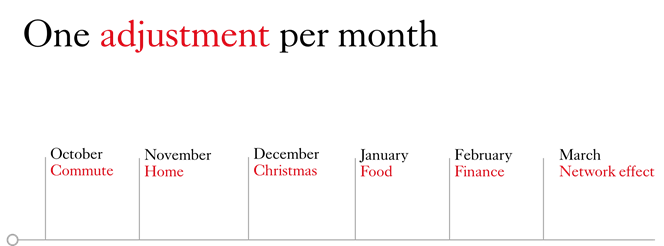
Month 1: October & Commuting
Switching my commute from bus to bike.
- It’s now March and I’m still cycling every day!
- I have saved at least £60 per month on bus fares
- I have gained 30 mins per day in commute time, because cycling is genuinely the quickest way for me to get to work
- I have lost weight and feel far fitter than I’d anticipated from an additional 30 minutes of daily cycling
- I feel a lot more connected to my local area: I notice new spaces as I cycle past them in a way I never did on the bus
Verdict: Easy, high impact and fun!
Month 2: November & Home
Changing household habits and spending patterns; from energy providers to toiletries.
- This is one I’ve added to every month, and I’m still collecting recommendations: The full list of things I’ve tried and would recommend is below if you’re interested!
- To highlight the real game changers:
- Sanitary products switched to Thinx in a completely revolutionary move. They are elegant, machine washable and so comfortable, I genuinely feel like one of the roller skating, skydiving women in those awful ads!
- Energy provider switched to Bulb, which has only ended up costing us 20p more per month for a fully renewable energy plan and some of my friends who switched are saving money.
- We now have greener versions of bulky items like laundry detergent, washing up liquid and toilet paper delivered: It’s cheaper, more convenient and the Who Gives A Crap toilet paper especially is more fun!
- And possibly my favourite sustainability tip of the year has been trying to wear a new outfit every day – without duplication – for as long as possible, to stretch and make you be a bit more creative with your wardrobe. The verdict after 80 days and counting:
- I’ve rediscovered all kinds of stuff in the back of my wardrobe and found new combinations of things that work together, so I’m not remotely tempted to go shopping and buy more clothes
- I’ve been (I think!) dressing better, because I’m thinking about it not just throwing on any old thing
- I’ve sketched my outfit each day, to make sure I don’t duplicate, and so have the beginnings of a little outfits menu, which is nice and, who knows, might make me dress better in future!
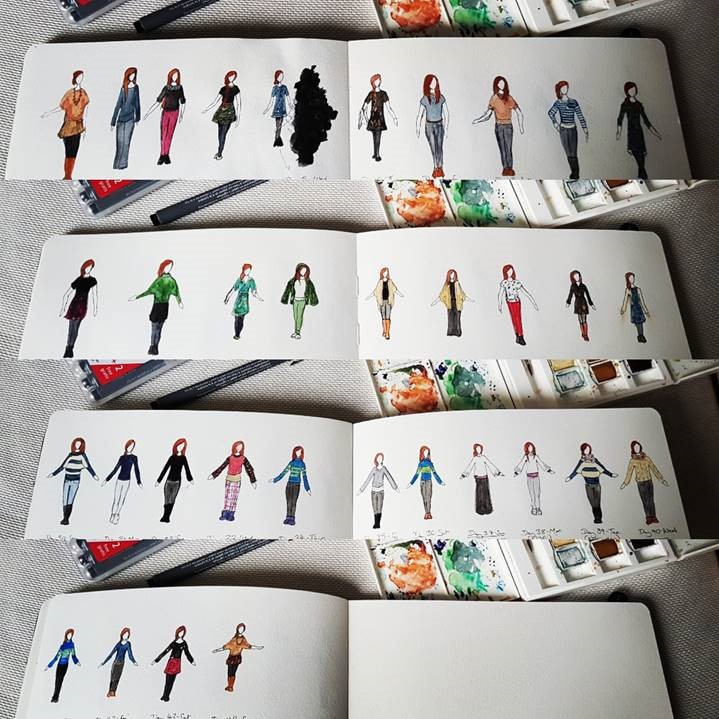
Verdict: Varied, but on the whole easy, high impact and fun!
To be continued…

